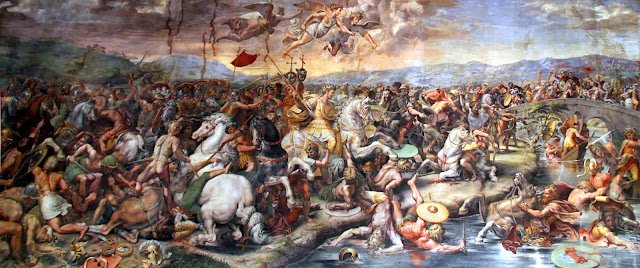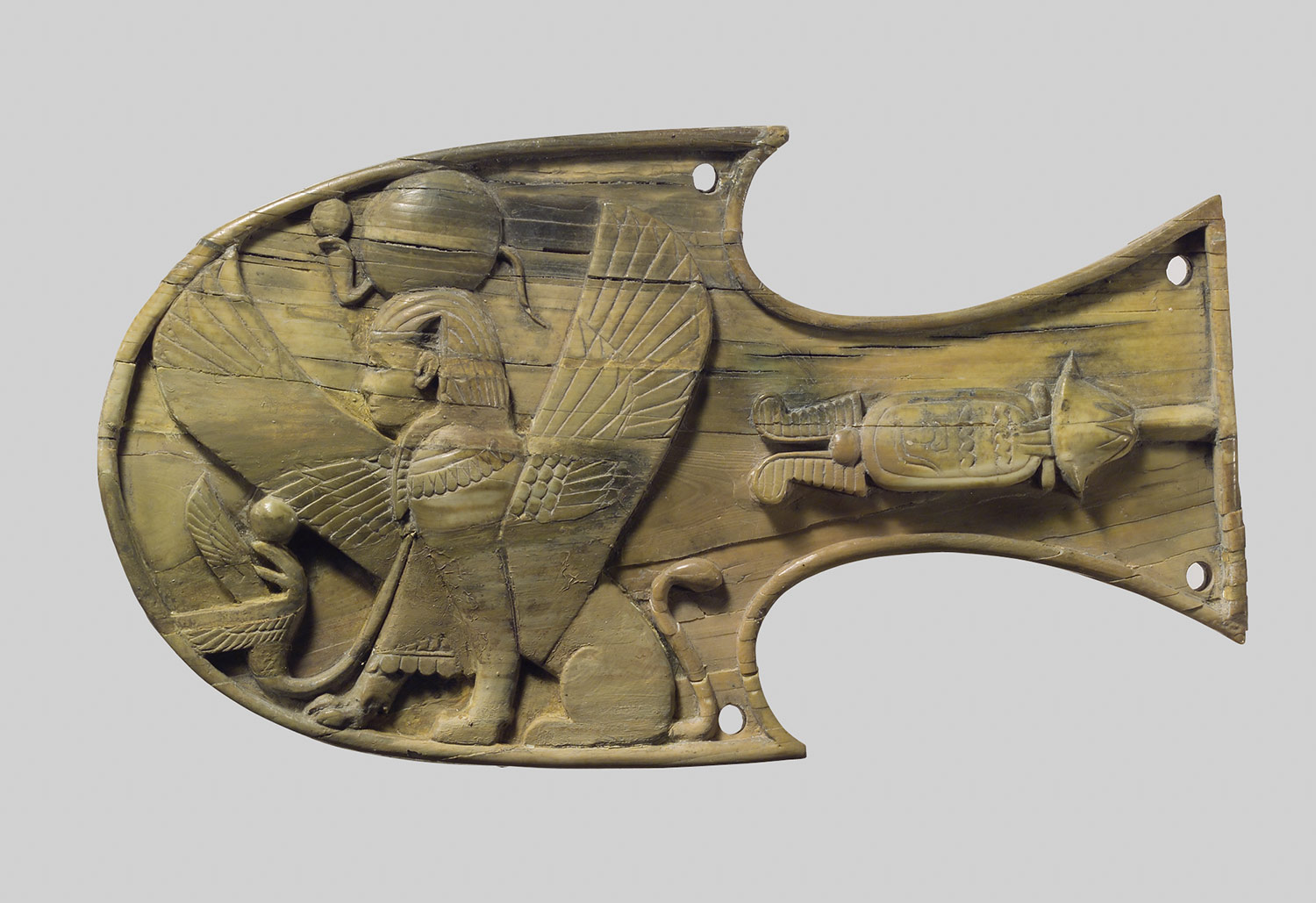Constantine
Background
- Born 272 AD in present-day Serbia; declared emperor 306- 337 AD; died 337 AD
- Son of high ranking army general/deputy emperor
- Career in army, excellent military leader
- Claimed throne after winning a civil war for absolute rule over a split empire
- "Accidentally" murdered his wife and son
 |
| Above: Constantine at the Battle of Milvian Bridge |
Achievements
- First Christian emperor (he converted to the rising religion after supposedly seeing Christian symbols in the sky during a victorious battle against a co-emperor, Maxentius, for sole control of the empire)
- Turned Roman Empire into a Christian empire by supporting the church
- Founded new capital "Constantinople" in ancient Greek city of Byzantium
- Increased wealth through ideal trading location of Constantinople (between Europe and Asia, and the Mediterranean and Black Seas)
- Increased longevity and defense through ideal defensible peninsula or new capital
- Laid groundwork for later Byzantine Empire/Eastern Roman Empire centered in Constantinople that would continue for 1,000 years after the fall of Rome itself
- Reforms separated military power from civil/government power (reducing civil wars by too-powerful generals who also were politicans)
- Reforms strengthened economy by introducing stronger currency to combat inflation ("solidus" gold coins)
- Defeated many tribes to secure and expand borders
- Replaced former emperor Diocletian's "tetrarchy" (splitting up the empire) with absolute rule and dynastic succession (like a monarchy)
 |
| Above: Constantine battled for control of the entire Roman Empire (it had been ruled by 4 co-emperors before him). |
- Illness and old age caused a natural death in his bed
- Helped transform Rome into a Christian empire,which would allow Christianity to spread, strengthen, and become a dominant world religion to this day
- Established a new capital for Rome (Constantinople) that would greatly increase the wealth and longevity of Roman culture beyond Rome and its collapse in the West in the 5th century
- Ordered construction of the Church of the Holy Sepulcre in Jerusalem, at the purported site of Jesus Christ's tomb


